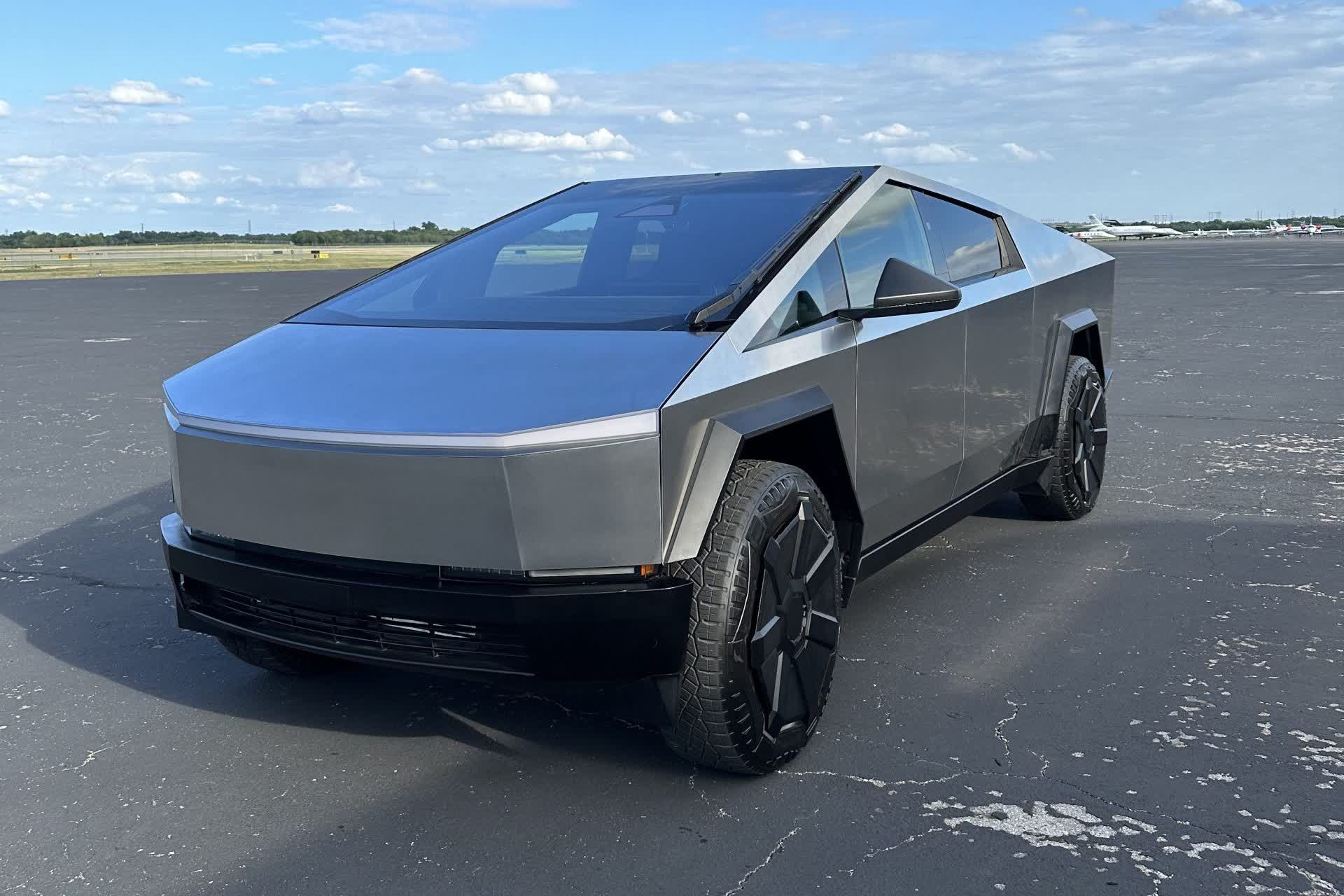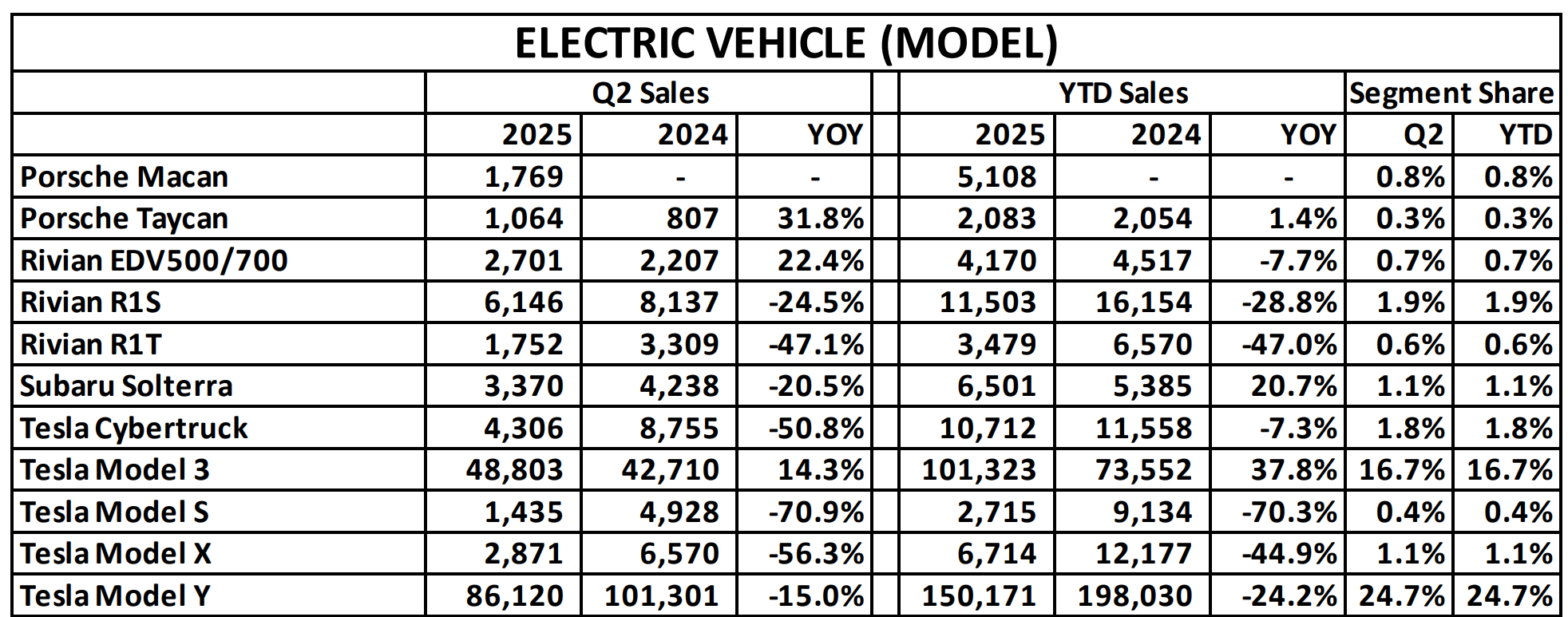In brief: Tesla's Cybertruck has not proved to be the start of the Cyberpunk 2077 era that some hoped. New figures on the sales of electric vehicles show that the truck's delivery numbers in the second quarter of 2025 were down by more than half compared to a year earlier.
According to the latest data from Kelley Blue Book, Tesla sold just 4,306 Cybertrucks in Q2 2025, marking a 50.8% decrease compared to the 8,755 vehicles that were sold during the same period in 2024.
That Q2 figure is even lower than the previous estimates for the quarter, which had Cybertruck sales somewhere between 5,000 and 6,000 units.
In 2023, Tesla boss Elon Musk told investors that he expected the company to be producing around 250,000 Cybertrucks by 2025. As things stand, it's set to miss that target by more than 90%.
The Cybertruck has not had a good year so far. In May, the $16,000 add-on battery pack that was supposed to increase the dual-motor Cybertruck's range to over 445+ miles was canceled. Tesla never said why it made the decision, though it was likely due to lack of demand.
It's estimated that Tesla has sold 46,096 Cybertrucks since customer deliveries began over 14 months ago. That's quite a discrepancy when you consider Musk said there had been over 1 million reservations for the truck before it launched. Wired writes that the automotive industry aims for a conversion rate of around 2 to 16% on reservations, so Tesla's 5% rate is near the bottom of the scale.
There were reports that Cybertruck production was briefly suspended in December amid concerns over slowing sales. A similar report a month later claimed workers were taken off the truck's production line and moved to a Model Y line.
More bad news for Tesla (and buyers) arrived in May. It was reported that unsold Cybertruck inventory was growing dramatically, and trade-ins for the vehicle, which Tesla had recently began accepting, were showing depreciation rates as bad as 34 percent after one year and 6,000 miles.
The future of the US-focused Cybertruck isn't very rosy, either. While EV sales continue to climb worldwide, the US is facing a wave of delays and cancellations, spurred by this September's end of the $7,500 federal EV tax credit.

